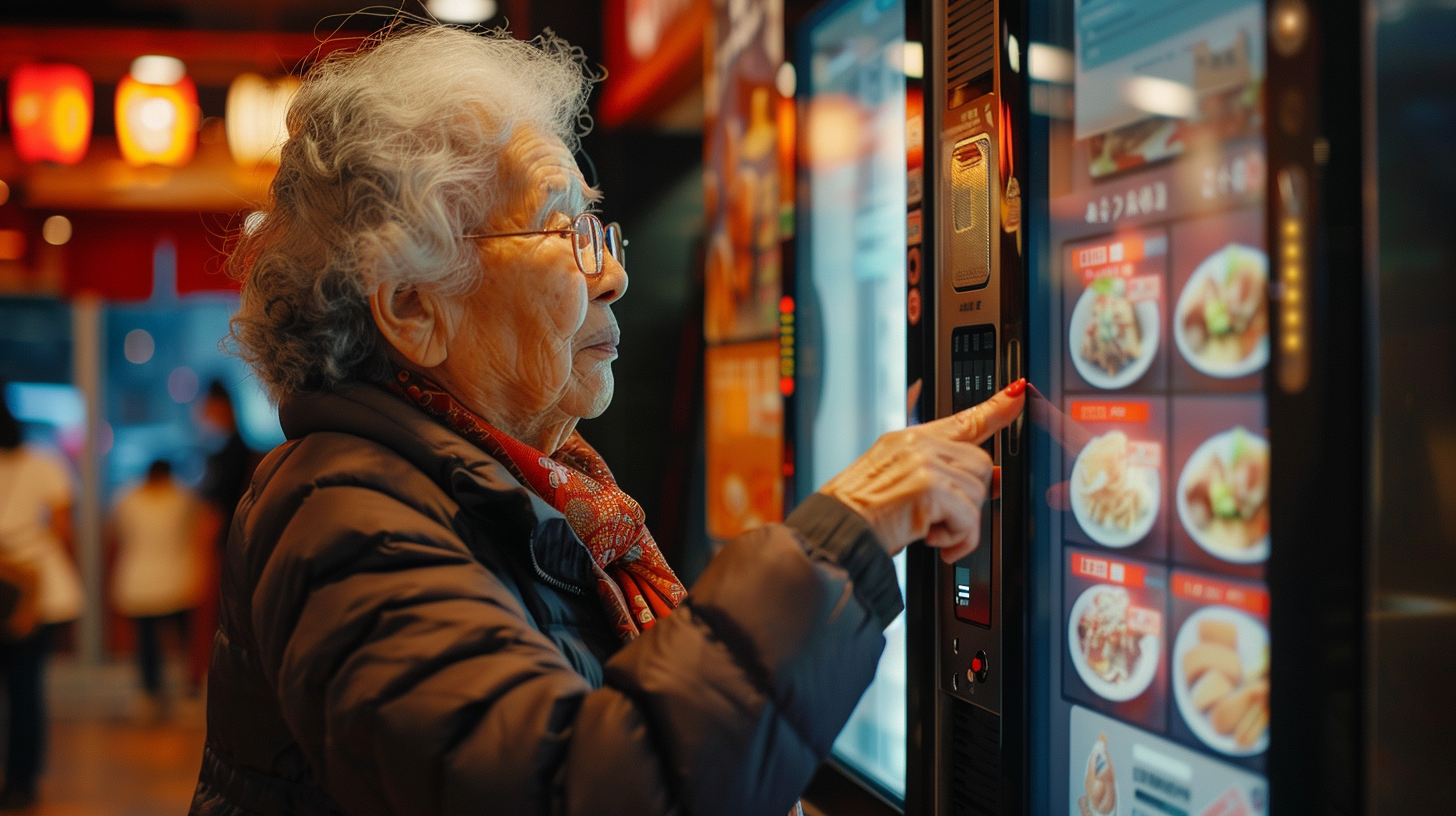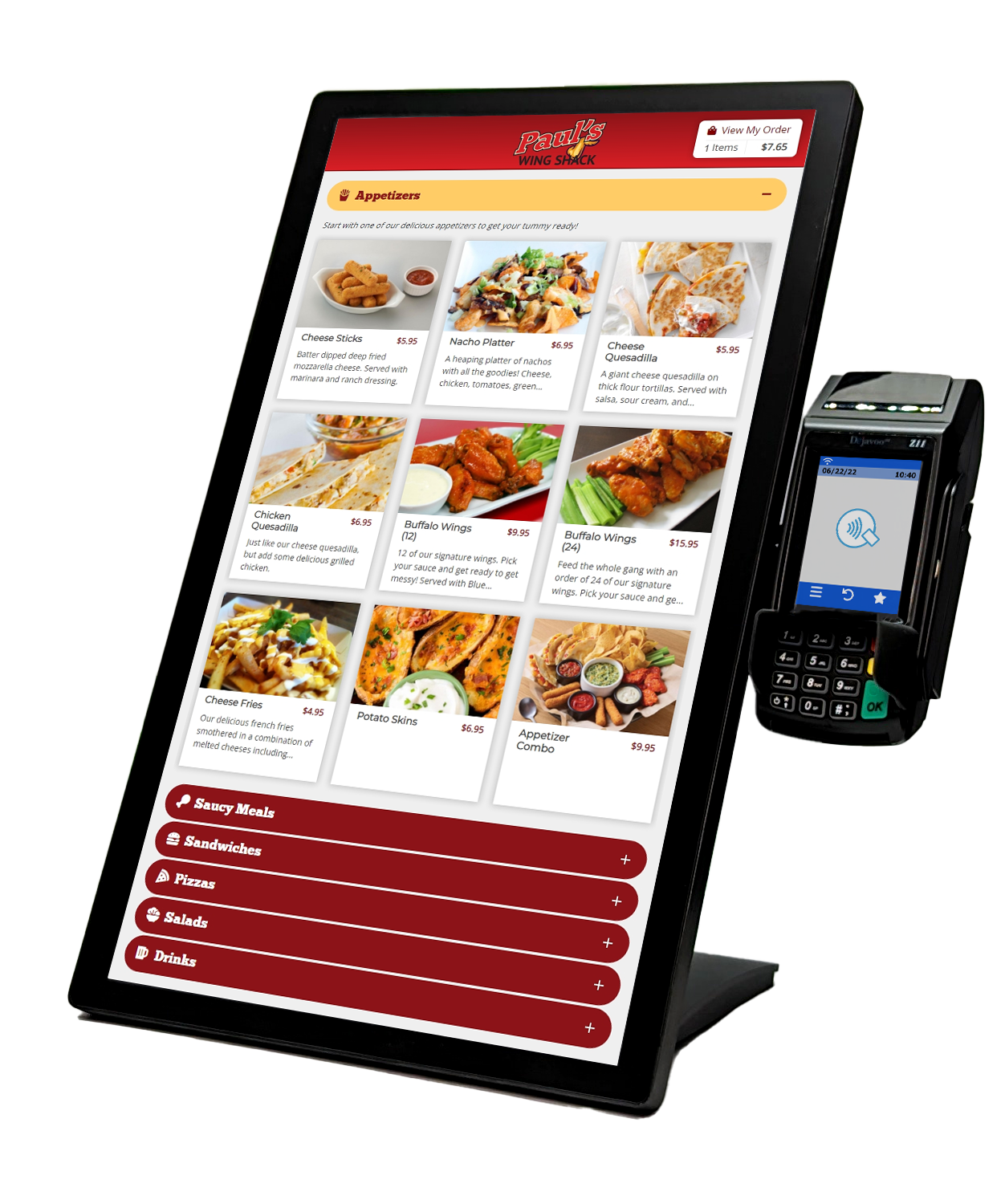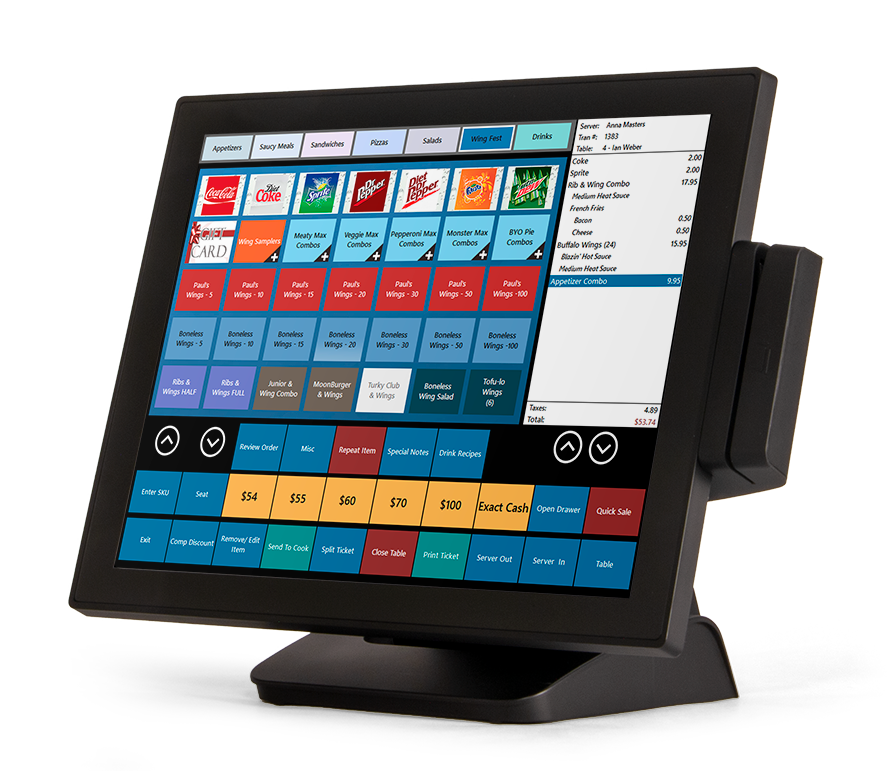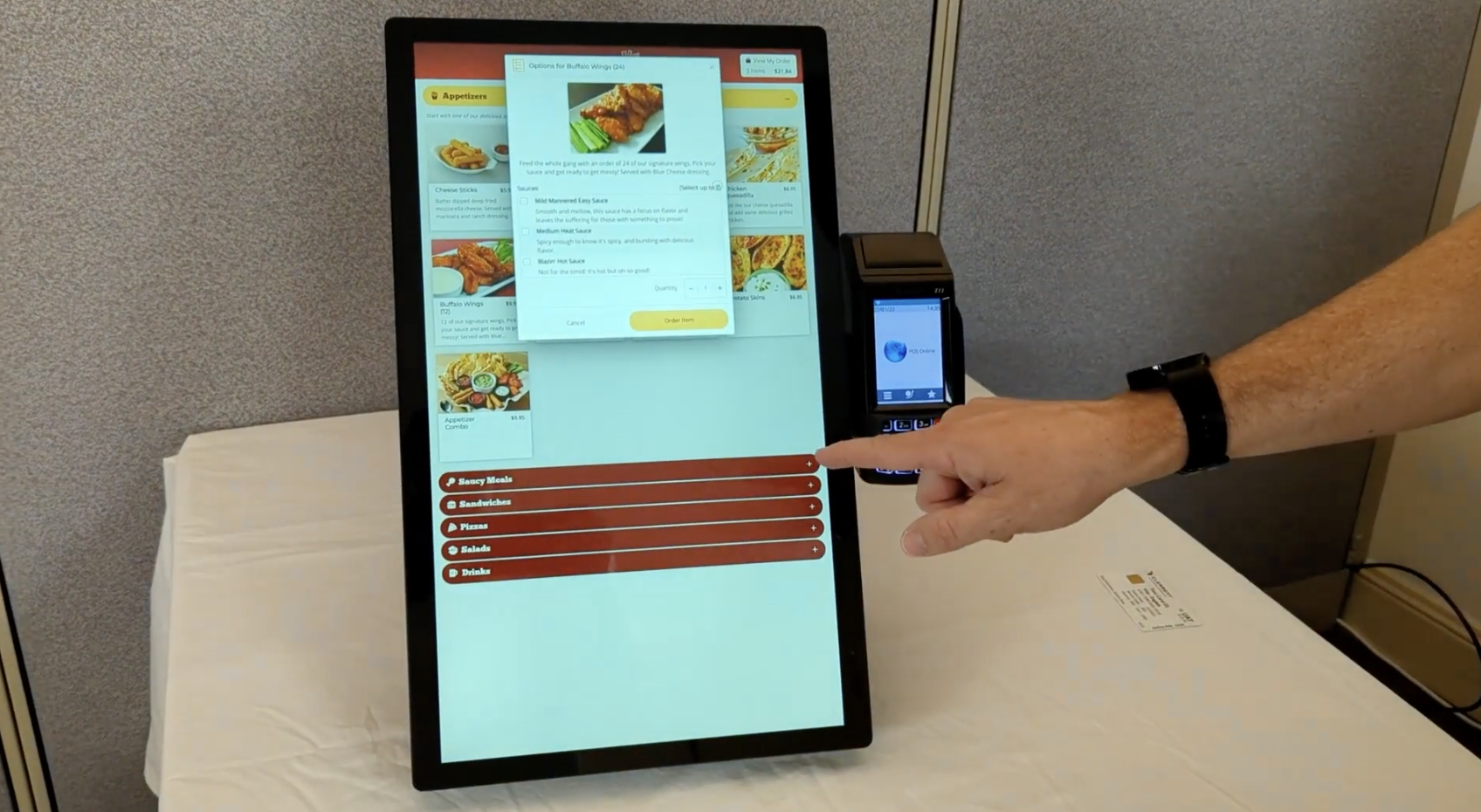Introduction
So, picture this: the next chapter in our restaurant adventures. It's a tale of convenience, efficiency, and putting the power in your customers hands. The hero of this story? Restaurants self-service kiosks.
You might be thinking, "Self-service kiosks? Aren't those just fancy vending machines?" Oh, they're so much more than that. These high-tech wonders are changing the game for restaurants and diners alike.
Imagine walking into your favorite fast-food joint, skipping the long line, and placing your order on a sleek, user-friendly screen. Customizing your burger is a breeze, and you can even add a side of fries with a simple tap. No more shouting over the counter or straining to hear the cashier. It's just you, the kiosk, and a world of culinary possibilities at your fingertips. This is also possible for your customers through BPA's restaurants self-service kiosk.
What Is a Restaurant Self-Service Kiosk?
Self-service kiosks are taking the restaurant industry by storm. And it's no wonder why. With 29% of people in the U.S. saying they eat out at least once every week, it's crucial for restaurants to adopt technologies that keep them competitive. Adding self-service is a smart move. These interactive terminals let customers place orders and pay without staff assistance. The result? Streamlined ordering and reduced wait times. Talk about a game-changer for quick service restaurants.
Benefits of Self-Service Kiosks in Restaurants
Restaurants self-service kiosks bring some serious perks to the table. First off, they optimize operations and cut costs. With a self-ordering kiosk handling transactions, staff can focus on other tasks like helping customers. Plus, these kiosks send orders straight to the kitchen with spot-on accuracy. No more "I ordered no pickles." mishaps. And get this: studies show that self-service kiosks actually boost sales by nudging customers to add on items and customize their orders. More revenue and happier customers? Yes, please.
How Self-Service Kiosks Work in Restaurants
So, how exactly do these high-tech wonders function in a restaurant setting? It's pretty intuitive. Customers walk up to the kiosk, peruse the digital menu, select their items, customize as desired, and pay via card reader or mobile app. The order zips off to the kitchen display system and the customer's name pops up on the screen when their food is ready. No more hovering around the counter playing the "is that mine?" guessing game. Some kiosks even let you skip the line and grab your grub from a designated pickup spot. Fast, easy, and dare I say, kinda fun?
Top Features of Restaurant Self-Service Kiosks
When it comes to self-service kiosks, restaurants have a buffet of options to choose from. But in our experience, a few key features separate the cream of the crop from the crumbs.
User-Friendly Interface
First and foremost, the kiosk's interface needs to be intuitive and easy to navigate. I'm talking big, bold images, clear categories, and a logical flow with menu items. If Grandma can't figure it out, it's too complicated. Customization is also clutch. Let customers personalize their orders with taps and swipes. Want extra sauce? No problem. Vegan? We got you. The more control customers have, the more likely they are to engage with the kiosk and come back for seconds.

Multiple Payment Methods
Gone are the days of cash-only transactions. Modern kiosks need to accept various payment types, from credit cards to mobile wallets. Some even let you pay with your smartwatch. The goal is to make the process as seamless and flexible as possible.
Integration with Kitchen Display Systems
A self-service kiosk is only as good as its integration with the back-of-house. Orders should flow directly from the kiosk to the kitchen display system and update in real-time. This keeps things running smoothly and ensures accuracy. No more lost tickets or confused cooks.
How Self-Service Kiosks Enhance the Customer Experience
Let's be real, waiting in long lines is about as fun as a root canal. But restaurants self-service kiosks are the Novocain of the restaurant world. They numb the pain of long wait times and make the whole experience more enjoyable.

Reduced Wait Times
By letting customers order and pay at their own pace, restaurant kiosks cut down on congestion at the counter. No more tapping your foot while the person in front of you hems and haws over their choice of side dish. Just walk up, tap, and go.
Increased Order Accuracy
We've all played the game of telephone with our fast-food orders. You say no mayo, but by the time it reaches the kitchen staff, it's morphed into extra mayo. With self-service kiosks, customers are placing orders all on their own, reducing the risk of miscommunication and increasing the dining experience. What you tap is what you get.
Personalized Ordering Experience
Kiosks put the power in the hands of the customer allowing them to add-on items. Want to sub fries for a salad? Go for it. Feeling adventurous and want to try a new combo? The world is your oyster. Kiosks let customers craft their perfect meal without feeling rushed or judged and let's not forget the upsell potential. Kiosks can subtly suggest add-ons and upgrades, enticing customers to splurge a little increasing the average order. A side of avocado? Don't mind if I do.
Contactless Ordering and Payment
In the age of social distancing, contactless is king. Self-service kiosks eliminate the need for face-to-face interaction and cash handling. Customers can order and pay without ever touching a human. It's like having a personal concierge, minus the small talk.
Increased Sales and Revenue
Studies show that customers tend to spend more when ordering via kiosk. Maybe it's the mouth-watering images or the subtle upsell suggestions. Whatever the reason, kiosks have a knack for boosting check averages and driving revenue.

The adoption of self-service kiosk technology represents an exciting frontier for restaurateurs aiming to modernize their establishments while keeping costs manageable—a key consideration underscored by solutions like BPA POS designed specifically with affordability in mind without sacrificing functionality necessary for today’s demanding retail environments including hotels and retail stores alongside restaurants.
By embracing these advancements strategically, restaurant owners stand poised not only to elevate consumer engagement but also to secure substantial gains in operational efficacy and financial performance. This evolution underscores a pivotal moment where leveraging innovative technologies becomes integral in shaping future success stories within the hospitality sector.
What is the Difference Between a Kiosk and a POS System?
Two technological solutions that have become increasingly popular for enhancing these aspects are kiosks and Point of Sale (POS) systems. While both serve critical roles in modern business operations, they cater to different needs within the industry.
Kiosk: Self-Service Simplified
A kiosk refers to an electronic device or stand-alone terminal designed for self-service tasks. In restaurants, hotels, and retail stores, kiosks allow customers to place orders, check-in, or access information without direct staff assistance. This not only speeds up service but also empowers customers with control over their transactions. A great example of how businesses utilize kiosks effectively can be seen in quick-service restaurants. These establishments use kiosks to streamline ordering processes which significantly reduces wait times and improves order accuracy.

POS System: The Business Management Hub
On the other hand, a Point of Sale (POS) system is an integrated solution that manages sales transactions alongside various other functions such as inventory management, customer relationship management (CRM), employee scheduling, etc., all from one platform. Unlike standalone cash registers or basic payment processing devices, BPA POS systems offer comprehensive features necessary for running day-to-day operations smoothly in hotels, retail stores and restaurants at an affordable price point.
The primary difference lies in their intended purpose; while kiosks focus on automating customer-facing services like ordering or check-ins thus reducing human interaction needed per transaction - POS systems act as central hubs for managing nearly all aspects of business operation backend activities including sales analysis. This distinction makes it clear why many businesses opt to integrate both technologies into their workflows: leveraging self-service benefits through kiosks while maintaining operational control via robust BPA POS solutions.

How do you set up a kiosk?
Setting up a kiosk in your restaurant can seem daunting, but with the right approach, it can be straightforward and rewarding.
Choose the Right Hardware
The first step in setting up a kiosk is selecting the appropriate hardware. Consider factors such as screen size, touch sensitivity, durability, and whether you need it to be waterproof or dust proof depending on its location within your establishment. For restaurants looking to integrate advanced features without breaking the bank, solutions like BPA POS offer cost-effective yet robust options tailored specifically for hospitality environments.
Selecting Your Software
Choosing software that meets your specific needs is crucial. Look for point-of-sale (POS) systems designed with restaurants in mind—ones that support menu customization, order management, payment processing integration, and real-time sales tracking. The versatility of BPA POS software, which caters to hotels, retail stores, and restaurants, is an excellent example of how specialized POS solutions can elevate service efficiency and provide valuable insights into business performance.
User Interface Design
A user-friendly interface design ensures customers will enjoy using your kiosk without getting frustrated or confused. Ensure the layout is intuitive with clear categories and easy-to-navigate menus. Incorporate high-quality images and detailed descriptions so guests can make informed choices without needing to ask staff for help. Additionally, test your interface with real customers before fully rolling it out to gather feedback and make necessary adjustments.
- Ease of Use: Make the kiosk as accessible as possible by ensuring that the menus are easy to navigate and the options are clearly labeled. Customers should be able to make their choices quickly and easily, to enhance their ordering experience.
- Safety Features: In light of health concerns, such as those highlighted by recent global events, it’s important to consider contactless payment options and sanitary screen protectors or regular cleaning schedules for your kiosks.
- Durability: Select hardware that is built to last. Consider investing in high-quality materials that can withstand frequent use and potential spills common in restaurant settings.

Why are Restaurants Using Kiosks?
In the rapidly evolving restaurant industry, self-service kiosks have become a key ingredient in serving up efficiency and enhancing customer experience. As business owners seek innovative solutions to streamline operations and boost sales, integrating technology like point of sale (POS) systems becomes essential. BPA POS offers an affordable yet comprehensive solution tailored for hotels, retail stores, and restaurants aiming to modernize without breaking the bank.
The Drive Towards Digital Ordering
Digital ordering through kiosks not only speeds up the service but also reduces order errors, leading to a more satisfactory customer experience. By allowing customers to browse menus at their leisure, customize orders precisely, and pay directly at the kiosk, restaurants can significantly improve order accuracy and table turnover rates.
Enhanced Customer Experience
Kiosks offer interactive experiences that today's tech-savvy consumers expect. They provide detailed menu information which can be updated instantly to reflect changes or promotions—further engaging customers with visually appealing presentations of food items that might entice them to try new dishes or add-ons they wouldn't have otherwise considered.
- Ease of Use: Touchscreen interfaces make it simple for users of all ages and tech skill levels.
- Languages: Multilingual support caters to diverse customer bases by offering services in several languages.
- Payment Flexibility: With integrated payment systems accepting various methods including credit cards, mobile payments, and even cryptocurrency in some cases; providing convenience is paramount.
Cutting Operational Costs
Kiosks help cut down on labor costs by automating tasks traditionally handled by staff such as taking orders or processing payments. This automation allows employees to focus on higher-value activities like improving guest service quality or managing kitchen operations more efficiently. Learn how self-ordering kiosks are reshaping the restaurant industry here.
Implementing Self-Service Kiosks in Your Restaurant
Ready to take the plunge and bring self-service kiosks to your restaurant? Here are a few tips to ensure a smooth transition.
Choosing the Right Kiosk Solution
Not all kiosks are created equal. Look for a solution that integrates seamlessly with your existing POS system, offers customization options and don't forget about durability. These babies need to withstand the daily wear and tear of a busy restaurant.
Designing an Effective Kiosk Layout
The layout of your kiosk is key to its success. Keep it simple and intuitive by using clear categories and high-quality images. Make sure the kiosk is easy to use for customers of all ages and abilities.
Training Staff on Kiosk Usage
Your staff are the front lines of your kiosk operation. Make sure they're trained on how to use the kiosks, troubleshoot common issues, and assist customers when needed. A little education goes a long way.
Promoting Your Self-Service Kiosks
Don't just plop a kiosk in the corner and hope for the best. Promote the heck out of it. Use in-store signage, table tents, and even your website to let customers know about your new high-tech ordering option. And don't be afraid to offer incentives for using the kiosk, like a free drink or dessert. The future of fast food is here, and it's powered by self-service kiosks. These high-tech helpers are revolutionizing the way we order and pay for our meals, one tap at a time. So, what are you waiting for? Join the kiosk revolution and watch your restaurant thrive.
 Key Takeaway:
Key Takeaway:
Self-service kiosks are transforming the restaurant game by cutting wait times, boosting sales, and improving order accuracy. They're easy to use, offer personalized ordering, and even make paying a breeze with multiple payment options. Ready to jump on board? Pick the right kiosk and get your team up to speed for a smoother ride.
FAQs in Relation to Restaurants Self Service
What is the cost of self-serve kiosk?
The kiosk system costs $1,095 with a $300 set up fee and $50 monthly.
How do you attract customers to your kiosk?
Placing signage letting customers know you have kiosks can help drive traffic. Strategically placing your kiosk(s) plays a big part in helping customers know you can serve them quicker. It does no good to have your kiosk next to the bathrooms ;)
What do you call a restaurant where you serve yourself?
This type of eatery is dubbed a self-service restaurant. A self-service restaurant allows customers to place orders and collect their food independently, often from a pick-up point or food bar. Some establishments mix this model with traditional table service, where patrons order at a kiosk but staff deliver the meals to their tables.
Conclusion
Restaurants self-service kiosks are more than just a trend – they're a game-changer. These digital marvels are redefining the way we dine by empowering customers, streamlining operations and increasing average order value through cross-sell opportunities.
Faster service, personalized orders, and a side of convenience? It crafts an eating adventure so good; your customers are bound to revisit time and time again. Restaurants that embrace self-service kiosks are not only keeping up with restaurant technology, but setting the stage for a more efficient and customer-centric future.
So, the next time you walk into a restaurant and spot a self-service kiosk, don't hesitate to give it a try. You might just find yourself wondering why you don't have one in your business. Have questions? Give us a call to find out how BPA's Kiosks can help you.
Similar Guides
Discover what is POS system software, its key components, and benefits. Streamline your business operations and enhance customer experience....
Streamline your restaurant operations using integrated POS and accounting software for efficient inventory, sales tracking, and financial management....
Discover how a smart restaurant point of sale can transform your eatery's efficiency and profits. Get insights on the best POS features, integration, and more!...